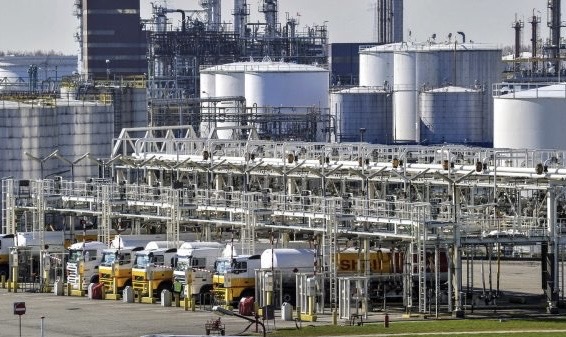KEY POINTS
- Shell intends to restart Europe’s largest refinery in Rotterdam by the end of November after a major overhaul.
- Traders expect the phased return of Pernis to ease tightness in the region’s fuel markets, especially distillates.
- The restart is being closely watched due to wider supply uncertainties linked to geopolitical tensions and global crude dynamics.
Shell is preparing to bring its 404,000-barrel-a-day Pernis refinery in Rotterdam back online before the end of November, following a lengthy maintenance programme that has taken large segments of Europe’s biggest refining complex offline.
Industry sources familiar with the schedule say the company remains on track to complete the extensive works without pushing the deadline into December, despite the scale of the shutdown and the tightness of skilled labour across the region.
The Pernis facility, long regarded as one of the most technically sophisticated refineries in Europe, has been undergoing an overhaul that included inspections, equipment replacements, and phased shutdowns across several process units. Traders monitoring the situation said the return of the refinery should help stabilise product balances that have tightened in recent weeks, particularly in middle distillates.
Market Participants Expect Incremental Supply Relief Once Units Come Back Online
With European diesel cracks remaining elevated and supply disruptions elsewhere adding to uncertainty, refiners have been under pressure to bring capacity back to the market ahead of winter. The restart at Pernis is therefore being closely watched by fuel traders from Amsterdam to Singapore, who see the plant as a key anchor of regional flows.
Shell has not publicly commented on the specific configuration of the restart, though people familiar with the refinery’s operations said the company is aiming for a phased resumption, beginning with primary distillation units before gradually bringing secondary units back into service.
Even in a normal year, maintenance periods at Pernis tend to ripple through regional pricing because of the refinery’s size and its role as a major supplier of gasoline, diesel and petrochemical feedstocks. This year, the effect has been more pronounced due to disruptions in Russia’s export programme and fluctuating demand from Asia.
The expectation among traders is that once the refinery is fully back, product margins will ease modestly, though much will depend on broader geopolitical factors and the direction of crude prices as December approaches.



